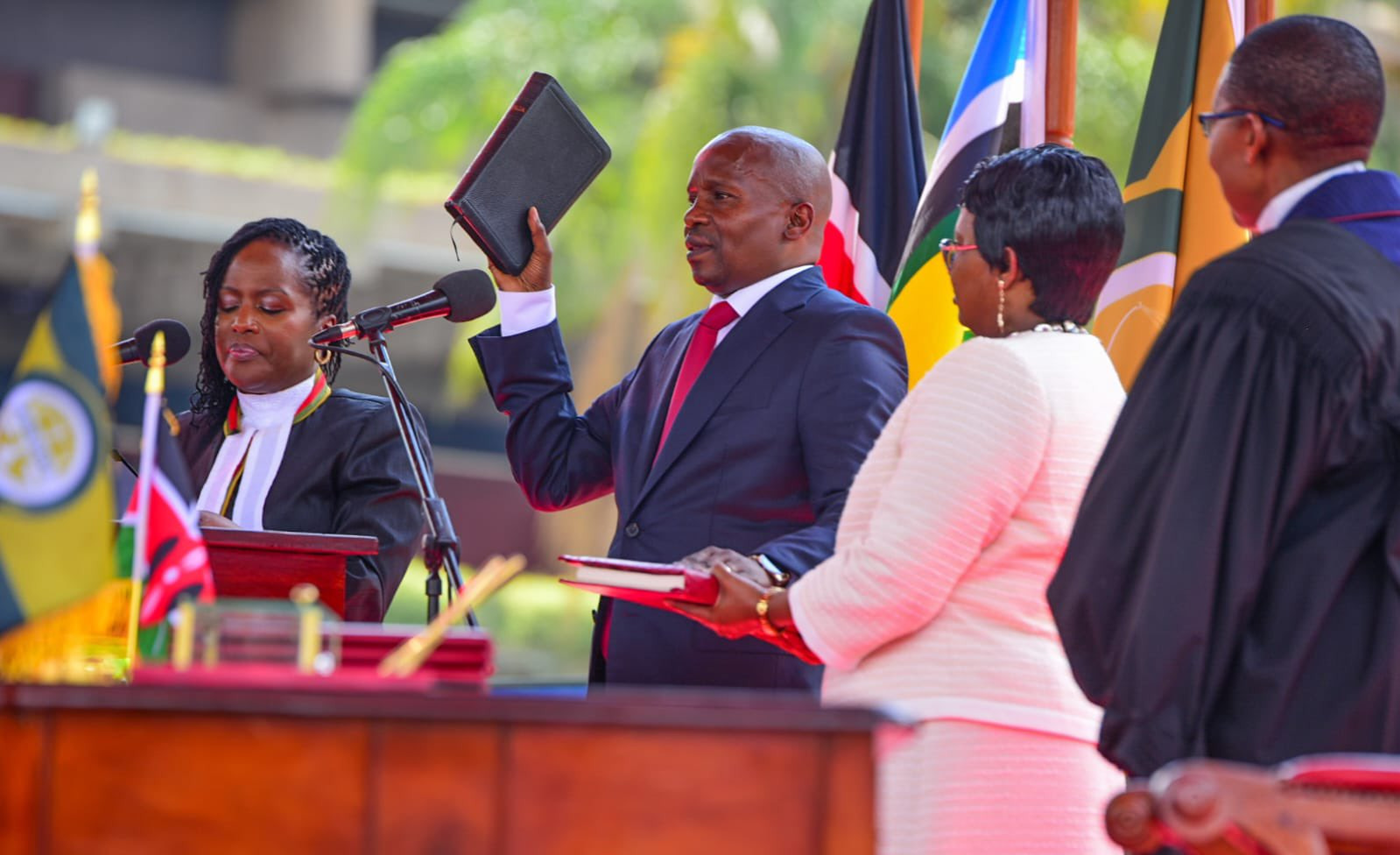
Race Intensifies For Interior CS Post After Kindiki’s Elevation to Deputy President » Capital News
NAIROBI, Kenya, Nov 2—Deputy President Kithure Kindiki’s departure from the powerful Interior docket leaves a significant void, as attention now shifts to who will inherit this critical ministry and build upon the foundations he laid.
President William Ruto must choose a successor adept at maintaining momentum in security, governance, and public trust.
Following a court ruling that cleared the way for Kindiki’s swearing-in as Deputy President, Prime Cabinet Secretary Musalia Mudavadi was named Acting Interior Cabinet Secretary.
Sources suggest Environment CS Aden Duale and Majority Leader Kimani Ichung’wa are considered for the position. However, Ichung’wa, while flattered by the speculation, has reaffirmed his commitment to Parliament, indicating he is not seeking a cabinet role.
Kindiki’s tenure is marked by significant milestones:
Silencing the Guns in the North
Under Kindiki’s leadership, Operation Maliza Uhalifu brought peace to the North Rift, which had been plagued by banditry.

The multi-agency task force successfully neutralized armed criminals, rescuing the region from violence that had claimed numerous lives over the years.
Tackling Corruption at Nyayo House
Kindiki cracked down on cartels within the immigration sector, declaring Nyayo House a “crime scene” and working closely with investigative agencies. His efforts reduced a passport backlog of 1.72 million by March 2024 and cut processing times significantly.
Combating Terrorism
He spearheaded robust anti-terrorism measures, improving intelligence and security operations in border counties like Mandera, Wajir, and Marsabit.

The establishment of 22 border posts bolstered quick response capabilities and reduced militant infiltration.
Modernizing Police Equipment
The government’s investment in advanced police gear, including APCs, drones, and mine-resistant vehicles, equipped officers for better performance in high-risk zones.
Addressing Police Brutality Concerns
Despite Kindiki’s achievements, his tenure faced criticism over police brutality and extrajudicial practices, particularly during protests.

More than 40 people were reported dead during clashes involving Generation Z demonstrators. Kindiki, however, maintained that the police acted within the law, emphasizing IPOA’s role in addressing any misconduct.
As the nation awaits Ruto’s decision, it’s evident that the next Interior Cabinet Secretary will need to navigate a multifaceted landscape of security, governance, and public confidence, building on the solid foundation laid by Kindiki.
About The Author